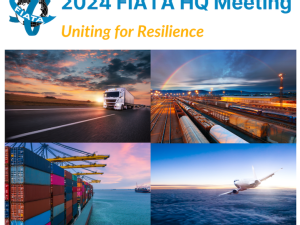Kenya is among the world's biggest rose producers. From Nairobi alone, Lufthansa Cargo files in more than 280 tons or roses for Valentine's Day. The flowers are picked at rose farms in the Kenyan uplands in the morning and transported during the day to the Kenyan capital to be loaded in the late evening onto a Lufthansa Cargo MD-11 freighter. Efficiency is at a premium because flowers in their full glory as messages of love are perishable products. The logistics chain, from the rose farm in Africa to the florist in Hamburg or Munich has to function reliably. Fast transport at the constant temperature of between two and four degrees Celsius is absolutely essential. After touch-down at Frankfurt Airport, the Valentine roses are quickly conveyed to the nearby Perishables Center, the largest of its kind in Germany, keeping their transit through the airport to a minimum. From the Frankfurt cargo hub, the roses are shipped our mostly on the same day to all corners of the compass in Germany to ensure the high-street florists have them in stock when the Valentine cavaliers call in.
In addition to Kenya, Ecuador, Colombia and Ethiopia are among the principal suppliers. Overseas rose producers benefit from crucial competitive advantages over European flower-growing regions. In the uplands of South America and Africa, long-stemmed roses thrive in a tropical climate all year round and their production, even with air transport is more environment-friendly. Unlike European roses, cultivated by necessity in heated and artificially lighted greenhouses, the roses grown in regions on the equator normally require no artificial irrigation or additional heating and consequently generate less CO2 than their European siblings.











